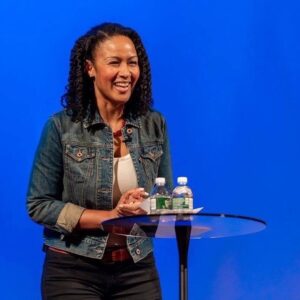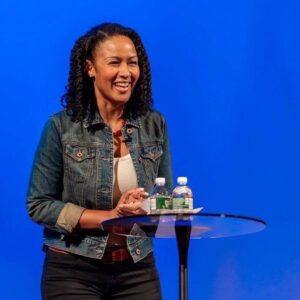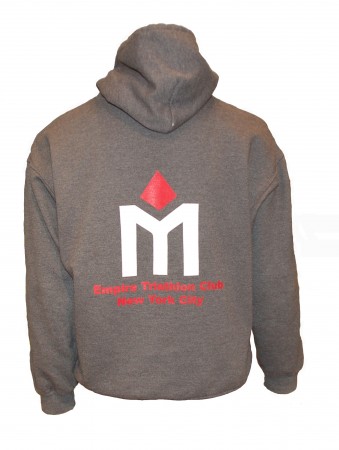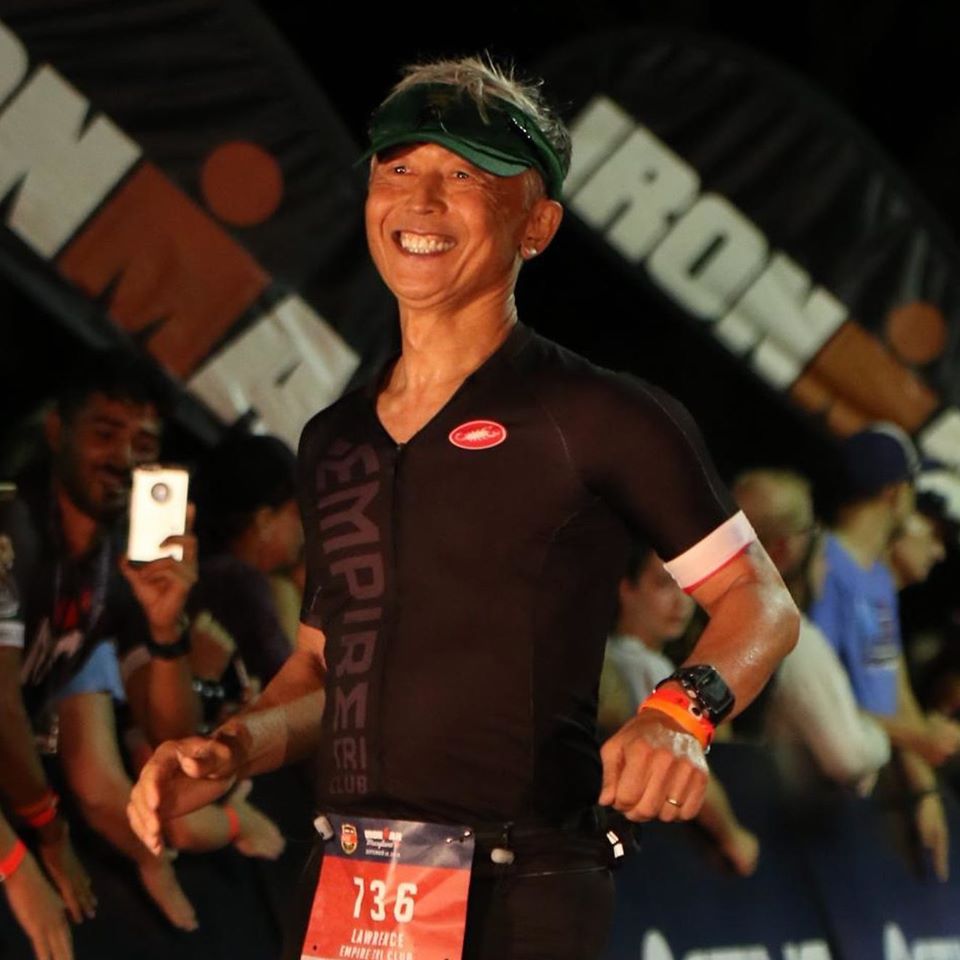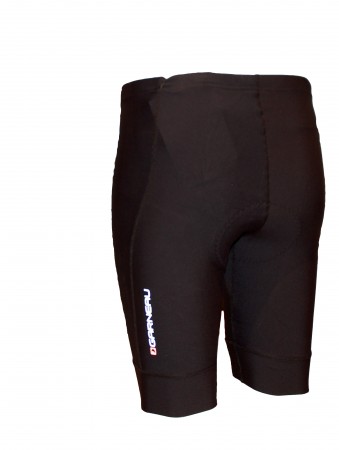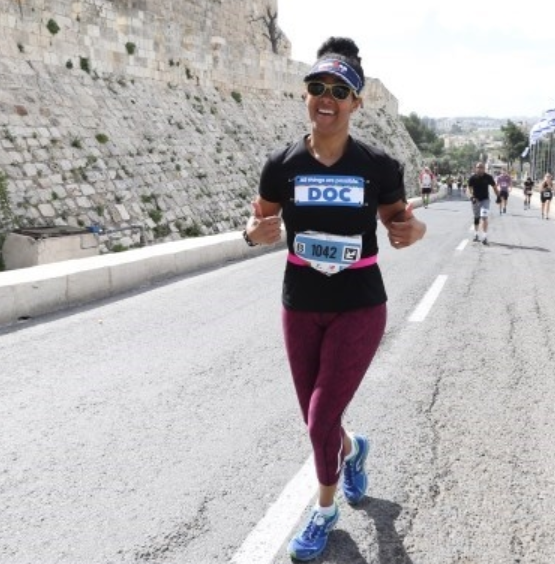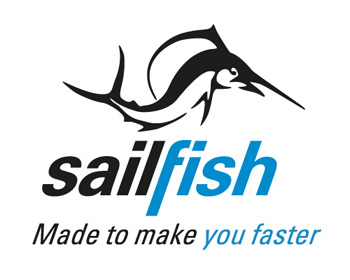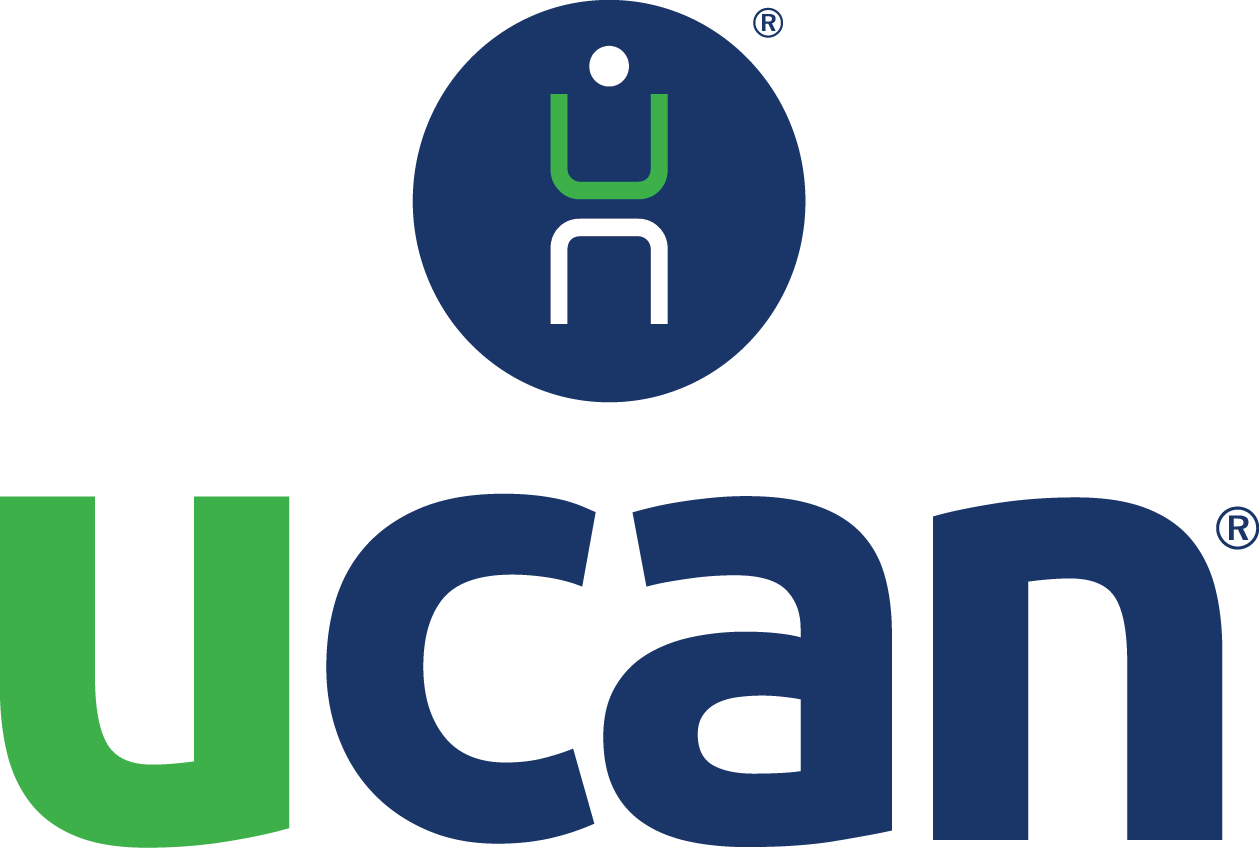

The NYC Marathon draws in such a diverse crowd of individuals. People come from near and far, speaking languages from all around the world. When you’re standing on the Verrazano Bridge, it might appear that everyone is at the NYC Marathon for 1 reason – to run. But when you take a moment to talk to a teammate, a friend or a person you’ve never met before, its amazing to learn that everyone has a different story.
After speaking with Deanna Angello, an Empire Tri Club Member and 10-year NYC resident, we were amazed to learn what sparked her to become a marathon runner, and where she draws her inspiration from!
ETC: Deanna, please tell us about how you got into running & triathlons:
DA: I used to mountain bike and run the obligatory 3 miles a day prior, and was addicted to spin class prior to living in NYC, but never had a desire to run further. I even cycled 400 miles from Raleigh, NC to Washington on my mountain bike (just for the extra challenge)! But with no easy access to trails (when I moved to NYC), I gave up my mountain bike for running shoes and started to train for my first marathon about 10 years ago.
ETC: Was this your first marathon?
DA: No, but my first time racing NYC. I’ve run 3 marathons, including NYC. Previous marathons include Chicago and Anchorage, Alaska. I’ve raced about 10 ½ marathons.
ETC: What was your goal going into this race?
DA: With four NYC marathon deferrals due to a number of injuries in the past (i.e, stress fractures, herniated disk to name a few), my goal for this marathon was to get to the start line healthy, run pain-free, and have fun doing the world’s greatest marathon!
ETC: As a triathlete, did you incorporate cross training into your marathon training? What did a typical training week look like for you?
DA: Past injuries have made me realize the importance of cross-training, specifically strength and interval training. My marathon training focused on this, running 3x a week, including some track workouts.
ETC: Were you raising money for charity or running for a particular cause?
DA: Yes – Association for Frontotemporal Degeneration (AFTD) – represents neurodegenerative diseases, in particular, Frontotemporal Dementia, a rare disease that affects people in their 50 & 60s.
ETC: Please tell us a little about that and what it meant to you?
DA: In 2009, my dad – my mentor and hero – was diagnosed with a terminal illness – Frontotemporal Dementia (FTD) at age 65. I attribute my athleticism to my Dad and that is why I will take on a series of athletic endeavors in honor of my Dad. My commitment is to raise $50,000 for The Association for Frontotemporal Degeneration(AFTD) to create awareness about FTD, to find effective treatments, and ultimately a cure.
ETC: We heard you ended up going to the medical tent. Can you tell us what happened and if you’re ok?
DA: Shortly after seeing two of my friends in Brooklyn, I started to feel my groin muscle pulling, but I was hoping it was going to go away….unfortunately it didn’t. I continued on, but as I approached my support crew at Mile 18, I knew in my heart that the race I planned to have wasn’t going to happen. My foot had swollen so much that I had to stop to have (Elle) loosen up my laces, as it was very painful. In the Bronx (Mile 20) I was coming to terms with disappointment and made the decision to listen to what my body was screaming at me to do – I told Elle I had to go to the medical tent at mile 21.
ETC: Was there any point in the race where you thought you may not finish?
DA: I know when to push through the pain and I know when stopping is the better option. I never had an issue with my right leg — ever, except for very tight hip flexors, but I did pull my groin muscle on my left leg a few years ago, which ultimately led to the stress fracture in my pelvis. I was out for 7 months after that, and I have athletic goals in 2014 that I can’t afford to be out for!
ETC: What kept you going? Especially after your decision to seek medical help…
DA: There was no way I wasn’t going to finish this race. It was important to me to finish, even if I had to walk, and to make my Dad proud. In the end, I did what I set out to do — finish, raise awareness and funds for the Association for Frontotemporal Degeneration (AFTD), made my Dad (and Mom) proud, and had fun along the course – especially the last 5 miles that I had to walk.
I may be a girl from Pittsburgh, which will always be my roots, but I did what New Yorkers always do, I persevered, despite the challenges, and figured out how to get it done. I may have been down, but I was never out of the game.
ETC: You must have been thrilled to have finished! Did you celebrate?
DA: Of course, Bloody Mary’s are not only my favorite drink, but also the best recovery drink of choice. I may have had a dozen of buffalo wings for some protein recovery 😉
ETC: Do you think you’ll run another marathon?
DA: Definitely, and next time I will still be on my mission to raise awareness and funds for FTD, but will also plan to go for a PR.
ETC: What’s next on your race calendar?
DA: Right now, I’m taking a break, but the two races I already have scheduled for 2014 are Mont Tremblant 70.3 and NYC Triathlon.
ETC: Is there anything else you’d like to share?
DA: Through my Strong Body, Strong Mind campaign, I’ve completed a trek to Everest Base Camp, and a number of races. Please check out my website. To date, I have raised over $31,000 for AFTD in honor of my Dad and all those fighting FTD. Thank you all for the encouragement and support. I’m very lucky to have such an amazing group of people in my life.


